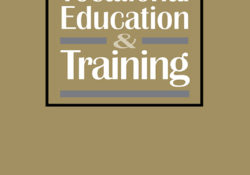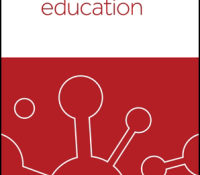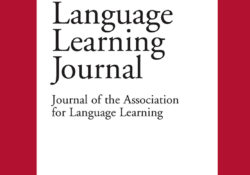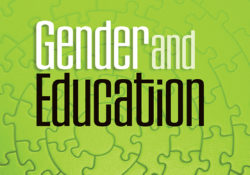tandfonline.com har udgivet en rapport under søgningen “Teacher Education Mathematics”: ABSTRACT ABSTRACT In this study, we focus on the role of Dutch Level 2 senior vocational training in care work in relation to the prospects and options it provides for students who follow this programme. Similar to the ‘care girls’ from previous studies our participants are young women from lower-class backgrounds who aspire to various jobs in the care sector, but are steered away from their original aspirations by their vocational training programme. The major difference between this research and previous studies is that we examine the Dutch institutional and broader structural context of care work. In the Netherlands, there is a lack of job opportunities for Level 2 graduates. This enables us to study the impact of limited job… Continue Reading →
Like this:
Like Loading...
tandfonline.com har udgivet en rapport under søgningen “Teacher Education Mathematics”: ABSTRACT ABSTRACT In this paper the authors examine the role the Dutch gymnasium continues to play in the institutional maintenance of educational inequality. To that end they examine the relational and spatial features of state-sponsored elite education in the Dutch system: the unique identity the gymnasium seeks to cultivate; its value to its consumers; its geographic significance; and its market position amidst a growing array of other selective forms of schooling. They argue that there is a strong correlation between a higher social class background and the concern to transmit one’s cultural habitus. They further speculate on the moral implications of state-sponsored elite education, both as it concerns the specific role of the gymnasium in the reproduction of social inequality… Continue Reading →
Like this:
Like Loading...
tandfonline.com har udgivet en rapport under søgningen “Teacher Education Mathematics”: Abstract Abstract When in 2014 the STEM Career Interest Survey (STEM-CIS) was developed, the researchers could check this instrument with other target audiences. Also, the question remained if the instrument was applicable for both boys and girls. This article describes the development and validation of a Dutch language version of it, called the STEM-LIT instrument, an instrument to measure the interest of children aged between ten and 12 years in Science, Technology, Engineering and Mathematics (STEM), focusing specifically on children from families with low socio-economic status (SES). The instrument has been adapted and developed in five stages and tested among Dutch primary school pupils in groups seven and eight (ages 10–11 and 11–12). The instrument was first tested in two… Continue Reading →
Like this:
Like Loading...
tandfonline.com har udgivet en rapport under søgningen “Teacher Education Mathematics”: ABSTRACT ABSTRACT The Netherlands are quite unique in that the Dutch have always learned various foreign languages. Until 1940, French was the most important foreign language. Between roughly 1870 and 1970, Dutch learners in grammar schools and higher secondary schools were even obliged to learn three foreign languages: French, German and English. Since 1970, however, English has become the first foreign language, and proficiency in French and German has declined. As for methodology, Dutch foreign language teaching/learning (FLT) has always taken a practical stand, in which the question ‘does it work?’ is paramount. This article provides an overview of the developments that have characterised Dutch FLT from approximately 1500 to the present day. Link til kilde
Like this:
Like Loading...
tandfonline.com har udgivet en rapport under søgningen “Teacher Education Mathematics”: ABSTRACT ABSTRACT This study focuses on high school students’ profile choices and the choice for or against the Nature and Technology (NT) profile in the Netherlands. A mixed-methods approach is used to study cultural values that affect this choice. The quantitative part of the study shows that being female is negatively correlated with the choice for the NT-profile, irrespective of the grade average for mathematics, chemistry and physics. It further shows that students’ ethnic background does not have a significant effect on this choice. The qualitative part of the study reveals that students’ choice processes towards or away from NT can be categorised in three ideal types: the postmodern perfectionist, the pragmatic hedonist and the materialist maximalist. Gender differences appear… Continue Reading →
Like this:
Like Loading...




